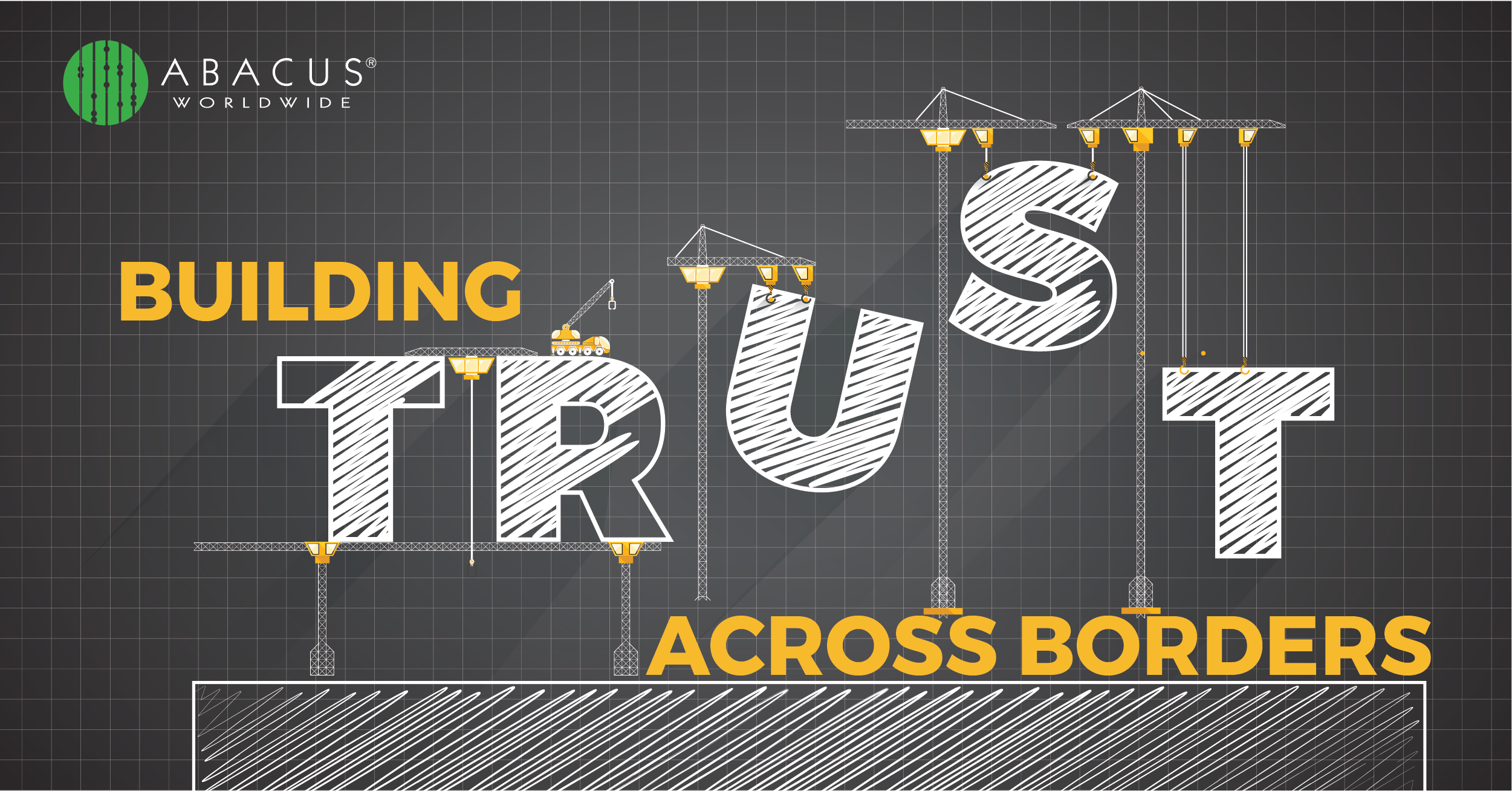
The Key to Successful International Business Relationships
Building trust in business was easy when the people you worked with had an office just down the street.
But it’s not so simple today when you need to work with someone half a world away. How can you connect in a place you’ve never been? How can you click when you might never meet? How do you build a relationship when language and culture create more of a barrier than a border?
These are serious questions for professional service firms who find they need to grow a global network to keep up with expanding clients. As a result, the success of accounting and law firms increasingly depends on their ability to form and nurture strong relationships across borders.
Technical expertise is critical, but relationships built on trust and friendship are the real drivers of long-term success. Whether you’re managing compliance for multinational clients or navigating complex cross-border transactions, the ease of establishing rapport with partners in other countries can set your firm apart.
One of the best ways to build these connections is by joining and actively participating in international professional associations like Abacus Worldwide®. These groups provide invaluable opportunities to network, share knowledge, and refer business among trusted peers. But membership alone isn’t enough. You need to build genuine, lasting relationships to truly reap the benefits.
In this article, we’ll explore WHY building rapport is essential, HOW to go about it, WHO should be involved, and WHAT types of exchanges will help solidify these relationships.
1. WHY Relationships Matter in International Business
Know and like are great, but trust is the foundation upon which everything else is built. Without trust, even the most technically sound deals can fall apart. This is particularly true in the legal and financial professions, where the stakes are high, and confidentiality, compliance, and risk management are paramount.
Cultural differences can also complicate matters. A handshake deal in one country might need to be formalized in writing in another. Some cultures value building personal relationships before any business discussions, while others prefer getting straight to the point. Navigating these nuances requires patience, understanding, and most importantly, trust.
According to a study by the Harvard Business Review, companies that prioritize relationship-building in their international business strategies are 23% more likely to experience long-term success in foreign markets compared to those that don’t. Firms that invest in trust-building activities tend to see better collaboration and smoother negotiations, making their cross-border operations more efficient.
By participating in international associations like Abacus Worldwide®, firms have the opportunity to meet vetted professionals from around the world, gaining access to a pool of potential partners they can trust. But trust must be earned over time as well; building rapport through consistent, meaningful interactions is critical to making these relationships stick.
2. HOW to Build Strong Ties in an International Context
Building trust and connections with international partners isn’t a one-size-fits-all process. Cultural differences, communication styles, and business practices all play a role.
However, there are several key strategies you can use to cultivate strong relationships, no matter where your partners are based:
Active Listening: One of the most important components of rapport-building is understanding the needs, goals, and pain points of your international partners. Listening actively — whether during a conference call, a face-to-face meeting, or via email — helps demonstrate your genuine interest in their success.
Regular Communication: In today’s digital world, staying in touch is easier than ever. Schedule regular check-ins, whether through video calls or messages, to keep the lines of communication open. Frequent, consistent communication builds familiarity and shows that you’re engaged. At Abacus, we provide online forums to facilitate connections and conversations among members.
Cultural Sensitivity: Doing your homework on cultural norms and business etiquette is essential. Small gestures such as greeting someone in their native language or understanding holiday customs can go a long way in fostering goodwill. Demonstrating cultural awareness shows respect, which is a fundamental building block of trust.
Consistency and Reliability: Trust is built over time by consistently delivering on promises. Whether it’s meeting deadlines or providing high-quality work, reliability signals that your firm is a dependable partner. This is especially crucial in international relationships, where distance and time zones can sometimes create obstacles.
Patience and Persistence: Relationship-building, especially across borders, doesn’t happen overnight. It requires patience to allow connections to deepen and persistence to maintain them over time.
3. WHO Should be Involved in Building These Relationships
While leadership may typically take the reins in forming external partnerships, fostering international relationships should be a firm-wide effort. In fact, the more people from your firm who are engaged in these partnerships, the stronger and more dynamic the relationships will become.
Partners and Senior Associates: Naturally, senior leadership should play a key role in relationship-building, representing the firm’s interests and establishing the groundwork for collaboration.
Mid-Level Professionals: Mid-level employees, including associates and managers, bring technical expertise and are often at the forefront of collaborative work. Encouraging them to take ownership of international relationships builds deeper connections across different levels of the organization.
Support Staff: Even non-client-facing staff can play a role. For example, administrative staff coordinating events or facilitating communication can contribute to the smooth functioning of international collaborations.
By encouraging team-wide involvement, your firm adds multiple layers of touchpoints, making the relationship richer and less dependent on a single individual. It also signals to your international partners that your firm is deeply invested in the partnership at every level. Associations like Abacus encourage participation by the entire firm rather than a single contact partner.
4. WHAT Types of Exchanges Build the Strongest Connections
Finally, let’s discuss what kinds of exchanges are most effective in cultivating lasting business relationships across borders. These interactions should go beyond transactional exchanges to truly build trust and camaraderie.
Knowledge Sharing: Offering to share best practices, industry insights, or new strategies with your international partners fosters a culture of learning and collaboration. Hosting webinars, workshops, or even casual roundtable discussions positions your firm as both a resource and a trusted partner.
In-Person Meetings and Conferences: While virtual meetings have become more prevalent, nothing beats the power of face-to-face interactions. Make the effort to attend international conferences or host visits with your international partners. Even a short meeting over coffee can leave a lasting impression. At Abacus, we know the importance of meeting face to face which is why we host four regional meetings and an global conference every year.
Social Events: Building ties doesn’t always have to be formal. Consider inviting international partners to social events, whether it’s a dinner, a sporting event, or a cultural outing. These informal gatherings allow people to connect on a personal level, making business relationships that much stronger.
Referrals and Collaboration: One of the strongest gestures of trust is referring business to a partner. Referring a client to an international partner or working on a collaborative project shows that you have confidence in their abilities. These opportunities for collaboration can strengthen the relationship exponentially.
Conclusion
In the world of international business, relationships are the cornerstone of success. By joining an international association like Abacus Worldwide® and actively engaging with its members, accounting and law firms can build trust, create valuable partnerships, and open up new opportunities across borders.
The key lies in consistent, meaningful interactions whether through sharing knowledge, attending in-person events, or simply offering a referral. When trust is established, your firm benefits from these relationships in the short term but can also foster long-term growth and collaboration.
